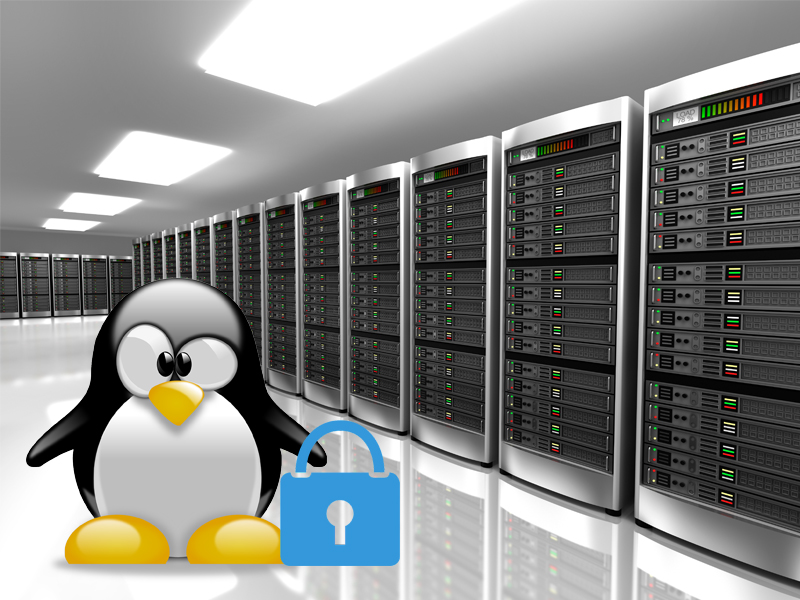Dedicated servers provide unrivaled control and performance when it comes to web hosting. Combining this with Linux’s adaptability and stability allows companies to run their online operations with maximum efficiency and safety. Dedicated Linux servers are the focus of this essay, which delves into their benefits, provider selection, setup, maintenance, and scalability choices.
Advantages of Dedicated Linux Servers
Security
The security features of a dedicated Linux server are well-known to be quite strong. Security breaches are less likely to occur on dedicated servers since they provide isolated settings, in contrast to shared hosting where several users share resources. The open-source nature of Linux and other Linux-based OSes makes them intrinsically more safe by facilitating continuous review and quick vulnerability patches.
Performance
Linux servers, because of their dedicated resources, offer dependable and constant performance, which is essential for applications and websites that use a lot of resources. Due to the lack of resource contention, your server’s performance is unaffected by the actions of other users, leading to improved responsiveness and user experience.
Customization
The flexibility to tailor dedicated Linux servers to individual needs is a major perk. With complete root access, administrators may modify the server settings to meet their needs. Linux gives customers the freedom to optimize server setups, install custom applications, and apply strict security measures. This allows them to design bespoke solutions that match their particular needs.
Choosing a Dedicated Linux Server Provider
For trouble-free hosting, choose the correct dedicated server provider. Here are a few things to think about:
Reliability
Find service providers who have a history of consistent uptime and dependability. To get a feel for the provider’s reliability and service quality, read reviews and testimonials written by previous customers.
Support
For any problems that could emerge, having access to technical help at all times is crucial. In the event of an emergency or technical issue, choose a supplier with a support team that is both timely and well-informed.
Pricing
Cost is important, but don’t let it dictate your priorities. Think over the resources and services offered by each hosting package, in addition to any hidden or extra fees.
Also Read: Foidsoy’s Journey as a Nutritious and Sustainable Protein
Setting Up a Dedicated Linux Server
Operating System Installation
Deciding on an OS to install on a dedicated Linux server is the initial stage in the process. Ubuntu, CentOS, and Debian are three popular options, and they all have their advantages and features.
Configuration and Optimization
Performance and security optimization of the server must be performed after operating system installation. Firewall configuration, network optimization, and software package installation are all things that may fall under this category.
Security Measures
To prevent harmful assaults and unauthorized access, it is crucial to secure your server. To keep your data and infrastructure safe, you must use security best practices including intrusion detection systems, strict password rules, and software upgrades.
Managing a Dedicated Linux Server
Monitoring Resources
Monitoring server resources like CPU consumption, memory utilization, and disk space regularly is essential for seeing and fixing possible problems before they get worse. Keep tabs on your server’s status and performance with the help of monitoring tools and notifications.
Software Updates
If you want your server to run fast and securely, you must keep its software updated. To stay protected from known vulnerabilities and exploits, be sure to schedule frequent updates for the operating system, software packages, and security patches.
Backups
If you want to keep your data safe from things like hardware failures, cyber assaults, or unintentional loss, you need a solid backup plan. Back up your files and databases regularly and keep copies in a safe place off-site to increase redundancy.
Scaling Your Dedicated Linux Server
Adding Resources
You might have to enhance the capacity of your server to handle more traffic and workloads as your company expands. Adding more processing power, RAM, or storage space is a breeze with most dedicated server providers’ flexible scaling options.
Load Balancing
Optimal performance and dependability are guaranteed via load balancing, which distributes incoming traffic over numerous servers. To avoid any one server going down during heavy traffic times, a load balancing system should be put into place.
Conclusion
When it comes to management, security, and performance, Linux servers are the way to go for organizations looking for dependable hosting options. Building a solid infrastructure that can adapt to your changing demands and accommodate your online expansion is possible with the correct provider, proper server setup and management, and the use of scalability options.
FAQs
What is a dedicated Linux server?
A physical server running Linux and rented out to a single client is known as a dedicated Linux server.
How does a dedicated Linux server differ from other hosting options?
Linux servers provide more control over the server environment and dedicated resources, in contrast to shared hosting, where several users share the same server.
Can I run Windows applications on a dedicated Linux server?
Wine and other compatibility layers, as well as virtualization technologies like VMware or VirtualBox, allow Linux servers to run Windows programs, even though Linux servers are mainly intended to run Linux applications.
Is it difficult to set up and manage a dedicated Linux server?
Installing and maintaining a dedicated Linux server calls for technical know-how, but luckily, many hosting companies give managed services or support alternatives to ease the burden.
What type of businesses benefit most from dedicated Linux servers?
Linux servers are the best option for businesses that have resource-intensive applications, high-traffic websites, or unique security and compliance needs. These servers offer superior performance, flexibility, and protection.

